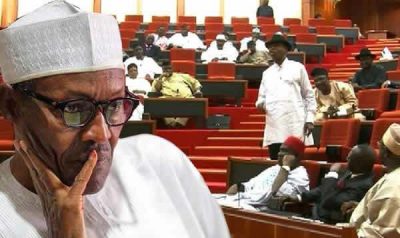By
Ogunniyi Abayomi
Celebrating or degrading the essence of democracy in our 21st century.
Democracy, the government of the people, was introduced to Nigeria on 29th May, 1999, transforming our ruling system from military to the federal system of governnment with constitutional provision to ensure an organisational and structural administration was built and implemented on the rule of law.
This system was implemented in 1979 via an election from which Shehu Shagari and Alex Ekwueme came into power as the President and Vice President of the first civilian government in the political history of Nigeria. The tension and instability was clearly evident on the basis of irregularities and corruption among polticians, disrupting the affairs of the nation.
The military regime, observing a political atmosphere of clustered affairs and disorganised administration, toppled the Shagari regime by the bloodless coup d’etat that was preceded by General Muhammadu Buhari and General Tunde Idiagbon‘s administration on December 31, 1983. The administration was overthrown by General Ibrahim Badamasi Babangida on August 27, 1985 in a bloodless coup to disrupt political affairs in Nigeria.
The strive and persistent craving for a democratic atmosphere was enacted despite the upheavals that befell the masses during the military administration. An election was conducted by the National Electoral Commision on the 12th June, 1993 to restitute the need and rise for a democratic society declaring Chief Moshood Kashimawo Olawale Abiola, a prominent bussiness man, as the winner of the election.
The election, annuled by General Ibrahim Babangida transfering powers to the hands of Chief Ernest Shonekan on 27th August, 1993, raised controversial protests against the administration of Babangida. Society was turbulent and unstable by this decision, political affairs thereby disrupted by the presence of military personnel nationwide.
The interim government was preceded by General Sani Abacha to supress opposing powers thereby creating an atmosphere of fury, turblence and tyranny against the craving for a democratic society. The execution and detention of those who opposed him generated a siege atmosphere and a state of totalitarianism until his controversial death on the 8th June, 1998.
General Abdulsalami Abubakar‘s succession to power on June 8, 1998 brought an atmosphere of calm and serenity to Nigerian society. The craving for a democratic society was enacted by the masses who were no longer comfortable with the military system of ruling.
Presidential and parliamentarians votes were cast and Chief Olusegun Obasanjo emerged as the winner of the 1999 election in Nigeria. May 29, 1999 marked the begining of a democratic society in the country and the transition of power from a military and federal system of government.
Seventeen years of democracy in Nigeria has been a shambles with the doubt over the state of leadership not fufilling the agenda of the masses who cast their vote to attain political positions.
The prosecution and controversial acts by our leaders has enraged our society where we live in a divided administration of stoic affairs that seclude the masses from their agenda to fufill selfish desire rather than fostering development. Not for one moment have we encountered peace, the emergence of Boko Haram, herdsmen and the callous activities and pogroms derailing our identity as a society.
Accountablity is an atttribute that has been secluded where funds and their allocations are mismanaged. A state that cannot give a proper record on money and how they are spent is dwindling in its realm of corruption, beyond the sphere of political affairs.
We see this and sometimes ponder if we are moving forward or regressing in the journey of democrcacy. By these there are many calls for a divided Nigeria and sentimentalism all over the federation. How long shall we be deceived that we are clustered away by their speech rather than tell our state of living that our feet may find their abode of comfort?
We must face reality while we strive to improve the condition of our country. Our nation is in a negative state whereas only its society stands to fight for its legacy.
The negative pogroms in the northern region wreaks havoc to our identity inspite of our human and natural resources. Ethnic and religious crises blight our vision from the potential of the system we are operating as a country.
The truth and need for intergity is omitted in the gap to survive in an unstabilised and divided wall built on the decayed platform of corruption. To eat and drink comfortably is history, the daily struggle to feed yielding nothing, yet sycophants and lazy hands feed on our table, leaving us with remnants to feed on.



No Comments Yet!
You can be first to comment this post!